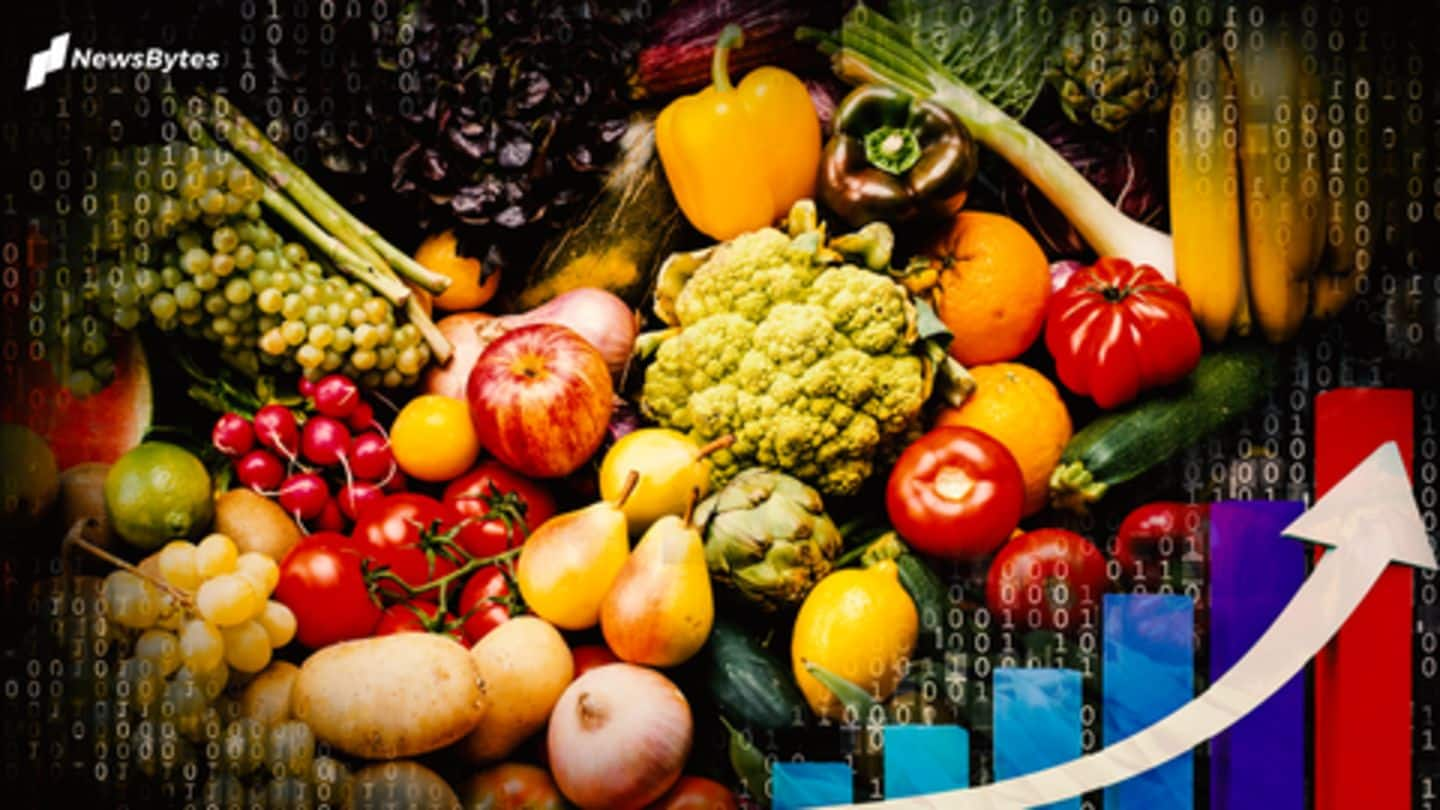
Coronavirus Impact: Food prices surge as supply chain suffers
What's the story
The coronavirus pandemic and 21-day lockdown announced in India to contain its spread have had a direct catastrophic impact on food supplies, with prices of staple items (barring cereals) increasing by at least three times as compared to last month, a report in HT said on Friday. There are three reasons behind this surge, and one relates to transportation. Let's understand the crisis.
Data
Items aren't reaching designated wholesale joints, transportation has become difficult
The publication arrived at this conclusion by assessing data from consumer affairs and numerous agricultural produce market committees (APMCs), which are state-run wholesale joints. The first factor behind the price surge is that the arrival of items at APMCs is down by almost 60%, as compared to the first week of March. The second reason is that land transportation cost has increased.
Third reason
There is a labor shortage due to lockdown
Though trucks, carrying essential items, have been given relaxation from the lockdown, drivers are finding it difficult to cross state borders. The third factor, the daily said, is the shortage of labor, required for unloading and sorting the items. On April 8, a study by Geneva-based International Labor Organization said 400 million poor Indians could be rendered income-less due to the lockdown.
What happened
Crops have been produced but they didn't reach consumers
Since state-run granaries are ensuring an abundance of wheat and rice, their prices are rarely fluctuating. There has been no dip in winter crops either, but authorities failed to coordinate supplies and deliveries at a fair price. This, despite, the Centre issuing directions on March 25, March 26, April 2 and April 8, to allow agricultural activities to run smoothly.
Tomato prices
A hub of tomato just received 60 tonnes recently
If one were to understand the supply crunch, one can look into tomatoes and onions, the two most used vegetables across households in the country. Andhra Pradesh's Mulakalacheruvu APMC market, which is a tomato hub, received just 60 tonnes of tomato between April 1 and 6. The modal price, a price mentioned several times during an auction, was fixed at Rs. 550/quintal.
Do you know?
Asia's largest onion market received 83% less supplies
Same was the case with onions. Nashik's Lasalgaon, Asia's biggest onion market, received 11,878 quintals of onion in April first week, whose modal price was fixed at Rs. 775/quintal. In contrast, in the first week of March, the market got 73,955 quintals of onion.
Details
States were asked to cap edible items' prices, they didn't
On April 8, the Union Home Ministry asked all states to put a cap on edible items under the Essential Commodities Act, 1955. However, no state has taken a step in this direction. To note, on April 13, India's official retail food inflation data will be released. Since the lockdown affected field agents' work, the National Statistics Office asked them to conduct inquiries via telephone.
Woes
In absence of buyers, farmers are destroying their produce
The President of All-India Motor Transport Congress, Kultaran Singh Atwal, said trucks aren't allowed to move. Just in case, they deliver the consignments, state authorities don't let them return empty. This has increased transportation cost by at least 15%. All these factors impacted farmers who are forced to dump their produce, at a time when the poor have little food on their plates.